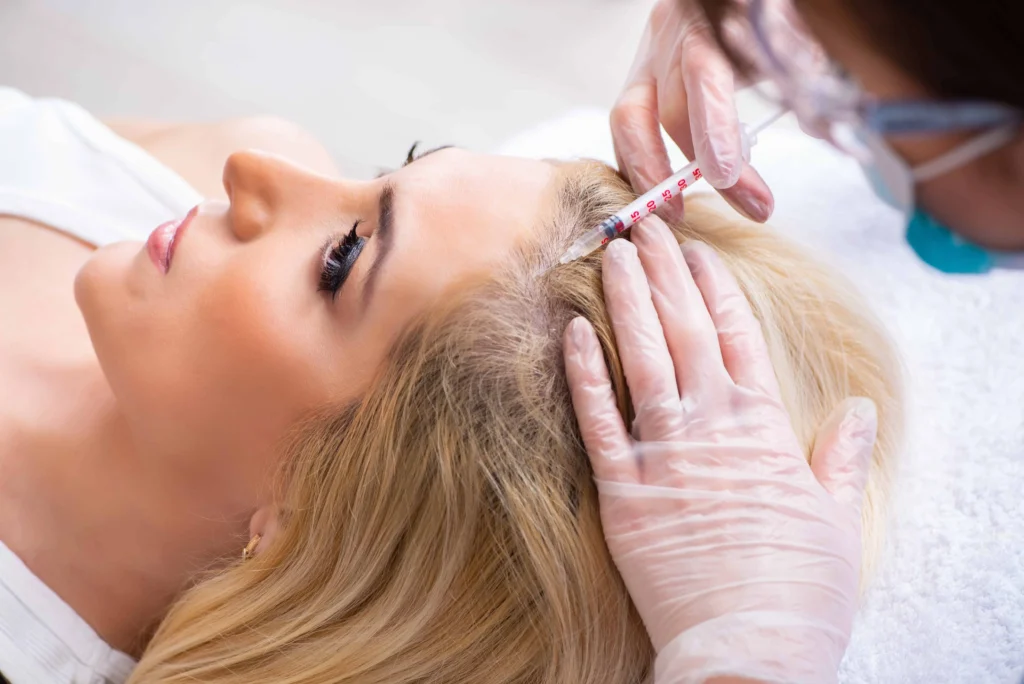
Introduction
Are you considering hair restoration but unsure if it’s the right option? The quest for a fuller head of hair is a journey many embark on, seeking confidence and rejuvenation. However, amidst promises of miraculous transformations, it’s crucial to understand the realities of hair restoration. In this comprehensive guide, we’ll explore the effectiveness of hair restoration treatments in Woburn, MA, shedding light on whether they truly work for everyone.
Understanding Hair Restoration
Hair restoration encompasses various techniques to reverse hair loss and promote regrowth. From topical solutions to surgical procedures, different approaches are available to meet the needs and preferences of different people. Topical solutions like minoxidil work by stimulating hair follicles and extending the growth phase, while medications such as finasteride inhibit the hormone responsible for hair loss. Surgical procedures like hair transplants involve meticulously harvesting follicles from donor areas and implanting them in areas with thinning or balding hair. Non-surgical alternatives like platelet-rich plasma (PRP) therapy harness platelets’ healing properties to stimulate hair growth, making them attractive options for individuals seeking minimally invasive treatments. With advancements in technology and ongoing research, the field of hair restoration continues to evolve, offering hope to those struggling with hair loss.
Types of Hair Restoration
Hair Transplants:
Hair transplant procedures involve transferring hair follicles from donor areas to areas experiencing hair loss. This technique is widely acclaimed for its effectiveness in providing long-lasting results.
Topical Treatments:
Topical solutions such as minoxidil and finasteride promote hair growth and prevent hair loss. While these treatments can be effective for some, results may vary depending on individual factors.
Non-Surgical Alternatives:
Non-surgical options like platelet-rich plasma (PRP) therapy and low-level laser therapy (LLLT) are gaining popularity for their ability to stimulate hair growth without the need for invasive procedures.
Factors Affecting Hair Restoration Success
1. Age:
A person’s age plays a significant role in the success of hair restoration treatments. Younger individuals with less advanced hair loss typically respond better to interventions than older individuals with extensive balding.
2. Type of Hair Loss:
The underlying cause of hair loss influences the effectiveness of restoration techniques. While genetic factors (androgenetic alopecia) are the leading cause of hair loss, other factors such as hormonal imbalances, medical conditions, and lifestyle choices can also play a role.
3. Overall Health:
An individual’s overall health impacts their body’s ability to heal and respond to treatment. The success of hair restoration efforts can be affected by factors such as nutritional status, stress levels, and underlying medical conditions.
Does Hair Restoration Work for Everyone?
While advancements in hair restoration technology have made significant strides, it’s essential to acknowledge that not every individual will achieve the same results. Here’s why:
1. Expectations vs. Reality:
Managing expectations is crucial when undergoing hair restoration. While treatments can improve the appearance of thinning hair and bald spots, they may not always deliver the desired density or coverage.
2. Genetic Predisposition:
Genetics play a crucial role in determining hair loss patterns and response to treatment. Individuals with a strong family history of hair loss may have limited success with restoration efforts.
3. Treatment Compliance:
Consistency is key when it comes to hair restoration treatments. Failure to adhere to treatment protocols, such as skipping doses of medication or missing follow-up appointments, can hinder results.
4. Scalp Characteristics:
The condition of the scalp can impact the success of hair restoration procedures. Factors such as scalp laxity, skin thickness, and scarring from previous surgeries can influence the outcome.
5. Budgetary Constraints:
Cost can be a significant barrier for many individuals considering hair restoration. While surgical procedures yield more permanent results, often with a higher price tag than non-surgical alternatives.
The Importance of Consultation
Before embarking on a hair restoration journey, consulting with a qualified medical professional specializing in hair loss is essential. During the consultation, the provider will assess your individual needs, evaluate the extent of hair loss, and recommend the most suitable treatment options.
Hair Restoration in Woburn, MA:
Our team at The Klinic by KSW Medical Aesthetics understands how hair loss affects confidence and self-esteem. Personalized treatment plans tailored to your needs will help you achieve your hair restoration goals.
Conclusion
While hair restoration holds promise for many individuals struggling with hair loss, it’s not a one-size-fits-all solution. Different factors affect success rates, such as age, cause of hair loss, and individual health status. By setting realistic expectations, seeking professional guidance, and exploring all options, you can make an informed choice about your hair restoration journey.
Whether considering a hair transplant, topical treatments, or non-surgical alternatives, The Klinic by KSW Medical Aesthetics supports you at every step. Contact us today to schedule a consultation to regain your confidence and restore your hair.


